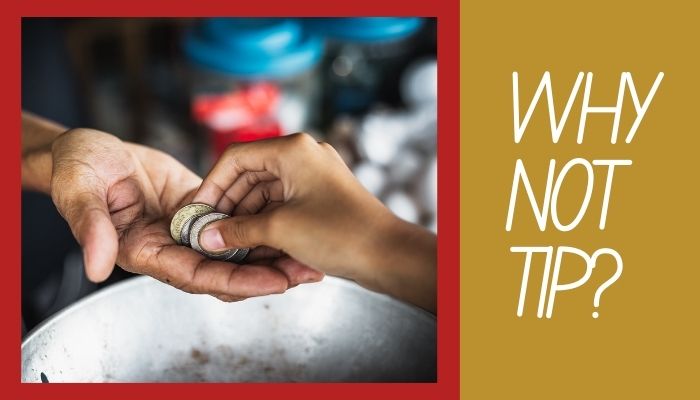Why Do Black People Not Tip? Overall, it is important to recognize that tipping habits are complex and influenced by various factors. Generalizing the tipping habits of any racial or ethnic group is harmful and perpetuates harmful stereotypes. It is essential to treat individuals as individuals rather than making assumptions based on their race or ethnicity.
This popular perception that black people do not tip is attributed to certain factors, including personal beliefs, cultural background, racism, and economic status.
Pin It!

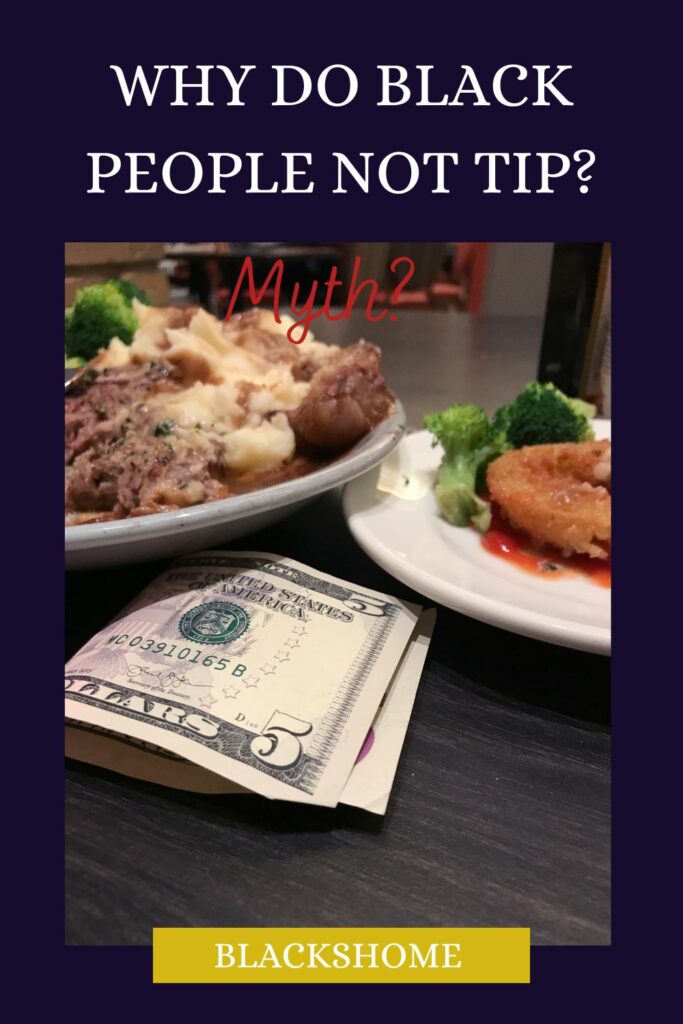
It’s no surprise that these stereotypes remain a topic of discussion in society today, especially in the restaurant industry. A study at Cornell University found that Black people tend to tip less than whites and that some industry education and home training were required for Blacks to learn how to tip..
However, various studies of different methodologies conclude that the average black person does indeed tip less than the average white person in U.S. restaurants. Since tips are given based on the quality of service customers receive, a lot of people may argue that black people tip less than whites because they are usually given poor service. Whether Black people tip less or not and why is something we are about to find out in this article.
Also Read: Also Read: Why Do Black People Have Big Noses? [MUST READ]
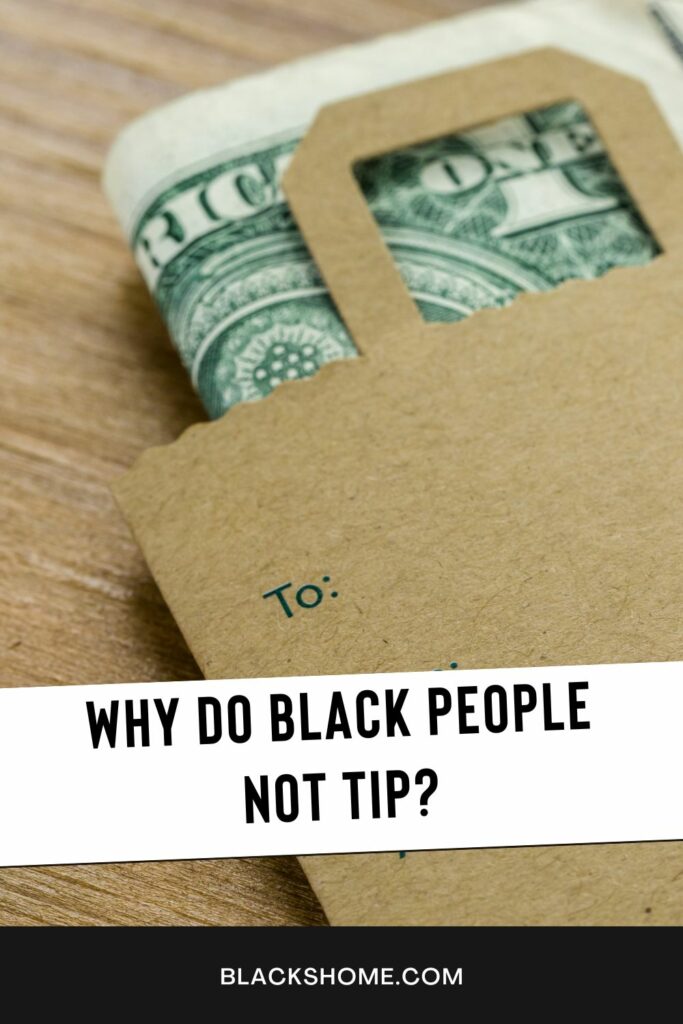
The History of Tipping
Tipping, the practice of giving a small sum of money to a service worker over and above the billed amount, has a complex history and varies significantly by culture, region, and individual behavior.

The practice of tipping originated in Europe, possibly as early as the 17th century. The word “tip” is believed to be an acronym for “To Insure Promptitude,” which was a phrase used in British coffeehouses. It was a gratuity given upfront to ensure better service.
In the 19th century, Americans traveling to Europe encountered this practice and brought it back to the United States. However, it was met with resistance. There was a sentiment that it was undemocratic and created an unequal power dynamic between patrons and servers. Despite early opposition, tipping became widespread in the U.S. by the early 20th century.
After the Civil War and the abolition of slavery, the practice became ingrained in many service professions, particularly in the restaurant industry. Many employers used tipping as a way to pay their newly freed black employees less. This led to a tipping system where wait staff and other service workers relied heavily on tips, a practice that continues in many parts of the U.S. today.
Also Read: Why do Black People Have Big Lips?
The Economics of Tipping

Since American travelers brought tipping to the United States from Europe, the practice has long spread. Some employers saw it as an opportunity to avoid paying wages, encouraging their customers to tip their workers. On the other hand, the Pullman Company, a train service that primarily employed Black porters, was well known for not paying its workers well, forcing them to depend on tips.
Despite the brief ban on giving tips in certain parts of the country, tipping became normalized in America. It eventually led to the exclusion of workers from the country’s first national minimum wage laws. While employers can still avoid directly paying them their wages, tipped Black workers still suffer inequality under the current system.
According to One Fair Wage, a labor organization advocating for the abolition of the tipped minimum wage, racial discrepancies in wages have caused Black women food servers to earn $2.57 an hour less than White men doing the same job. A report shows about 22% of Black women working in tipped restaurant positions said their tips didn’t cover the difference between subminimum and minimum daily wage, compared to about 10% of White men.
Cultural Differences and Tipping
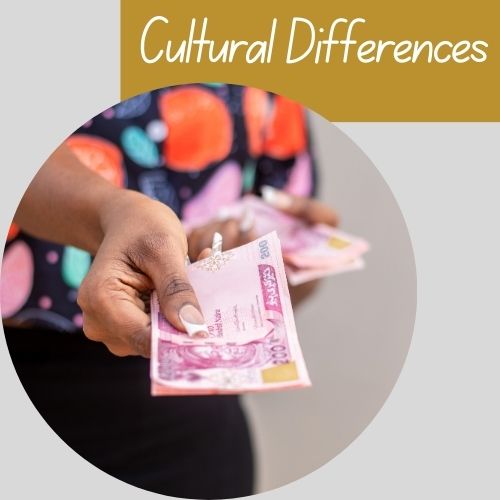
While not all cultures value tipping practices in the same way, understanding their differences is important. The issue of cultural differences in tipping goes beyond the practices of a single ethnic group. For example, focusing on Blacks, the restaurant industry needs to find ways to educate many cultural groups on prevalent tipping practices.
‘Poor tips,’ usually as a result of ignorance and not spite, are negative for the industry, its employees, and customers. It is, therefore, important for cultural groups to work together to educate customers from all backgrounds about tipping.
Gratitude is argued to have evolved to motivate and maintain social reciprocity among people. However, it turns out to be very rare among friends, family, and neighbors in Africa, Asia, Australia, South America, or Europe, and even among English speakers who believe saying ‘thank you’ is an important aspect of politeness.
English and Italian speakers seem to express gratitude more often than non-Western language speakers. Despite the attitudes encountered in some cultures that often put cultural value in saying ‘thank you’, such practices do not appear to be necessary for the maintenance of everyday social reciprocity.
Why Some People Tip and Others Don’t
The practice of tipping is influenced by various factors. Here are some:
Cultural Differences:
Tipping practices vary widely around the world. In the United States, tipping is customary in many service industries, from dining and delivery to hair salons and taxis. In contrast, in countries like Japan, tipping can be seen as insulting, implying that the employee isn’t being paid enough by their employer. In Europe, a service charge is often included in the bill, so additional tipping is less common.
Economic Factors:
The economic status of a person can influence their tipping behavior. Those who have more discretionary income are often more likely to tip, and may tip more generously.
Quality of Service:
In theory, tipping is supposed to incentivize good service. If a customer is satisfied with the service they received, they might tip more; conversely, if they’re unsatisfied, they might tip less or not at all.
Social Pressure & Norms:
People might tip because they feel it’s expected and don’t want to be seen as cheap or rude. This social pressure can influence tipping behavior.
Awareness and Empathy:
Individuals who understand that many service workers rely on tips as a significant part of their income may be more likely to tip, out of empathy or a desire to support those workers.
The Myth of the “Bad Tippers”
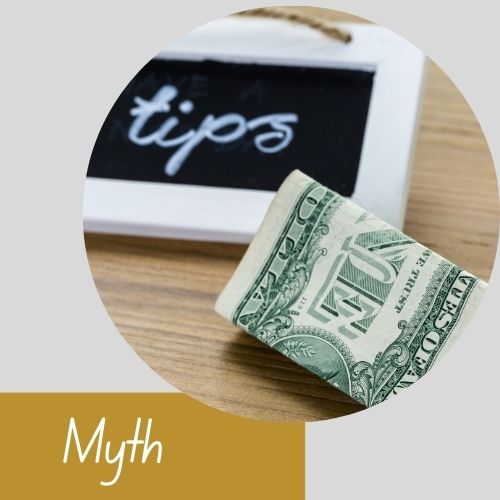
It’s no longer news that Black people are generally thought to be ‘bad tippers.’ If there was a general scale listing tippers from best to worst, Blacks would rate last, and this stereotype seems to transcend class, station, and situation. Here are a few theories as to whether this is true or not.
1. Insufficient Information on tipping.
The perception ‘Blacks are bad tippers’ may be true, but could it be due to Blacks not being aware of proper tipping etiquette? A lot of ‘bad Black tippers’ may just be stuck in a world of ignorance. What they fail to realize is that tipping isn’t an option but a social requirement when dining out.
2. People easily confirm with beliefs what they already know.
The truth is, this perception may be driving the stereotype, instead of it being the other way around. If Black people are thought to be bad tippers, it’s best to be more sensitive to an example of ‘Black people tipping badly’ as evidence to confirm thoughts about them.
3. Black people get poor service because of tipping reps.
Black people are thought to be bad tippers, but here is another thing that isn’t less of a secret. Black people have been receiving bad treatment, which has extended to restaurants and bars, where there is still a huge difference in how they are treated compared to their White counterparts. In conclusion, Blacks tip poorly and may continue to tip poorly because they continuously get poor-quality service.
What Does Research Say about Tipping Habits
A new study by a researcher at Cornell University’s School of Hotel Administration found that 63 percent of blacks and 30 percent of whites still don’t understand that the standard restaurant tip in the United States is 15 to 20 percent.
The difference between how blacks and whites view tipping has major consequences for restaurants and lost profits. Below are 4 general patterns in the tipping behaviors of Blacks and Whites.
- Black percentage tippers leave a smaller average percentage of the bill than do White percentage tippers across many service contexts.
- Blacks appear more likely than Whites to stiff commonly encountered service providers, but not less commonly encountered ones.
- Black flat tippers leave larger average dollar tips than White flat tippers across many service contexts.
- Blacks appear more likely than Whites to leave flat tip amounts to service providers who are commonly tipped a percentage of the bill but not to service providers who are more rarely tipped a percentage of the bill.
Also Read: Black People Statistics You Probably Didn’t Know About!
What do you think…
To date, the reason behind the black-white difference in tipping remains ambiguous. The solution to this tipping difference requires an in-depth understanding of its causes. However, we do know that this interracial tipping difference exists, as well as the negative effects of these differences. Choosing to ignore and avoid open discussions on this matter will only create more stereotypes that will destroy businesses and consumers involved.
Read Related Articles:
- Are Black People Ugly?
- Are Black People Dumb?
- Why do Black People Get Ashy?
- Why Don’t Black People Get Lice?
- Why Do Black People Have Big Butts?
- How Many Black People are in Russia?
- How Many Black People Live in Montana?
- How Many Black People Have Won Survivor?
- Are Black People Stupid? All you Need to Know!
- Why do Black People Say AKS? The Real Story Behind it!
- Why are Black People Faster: Uncovering the Science of Black Speed!
- Why are Black People so Loud: Deciphering the Black “Energy”: Why We’re Louder!
